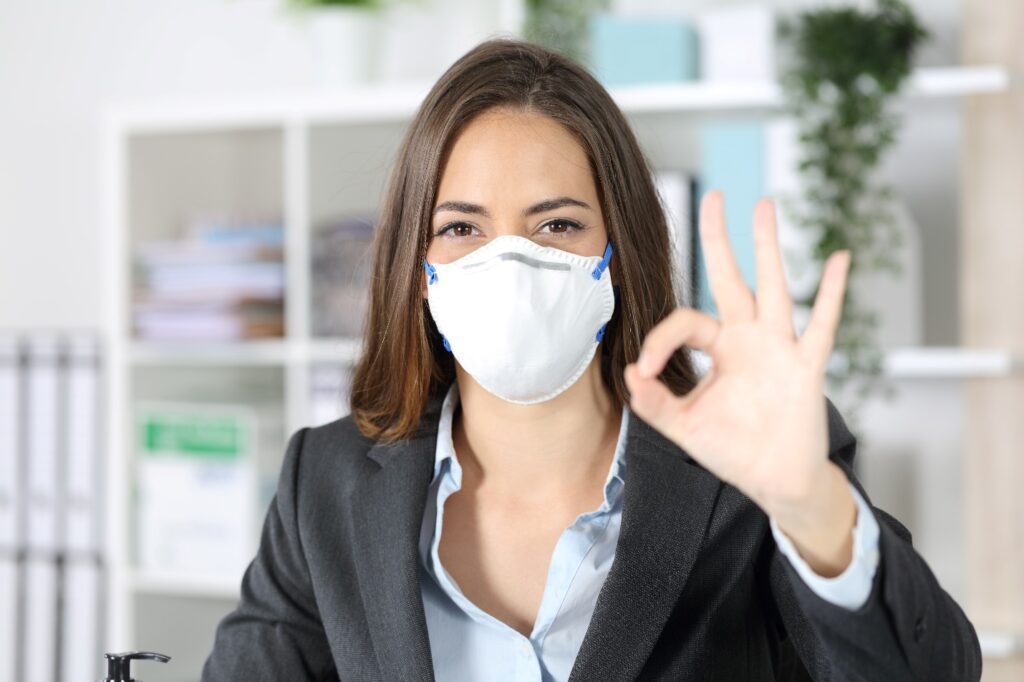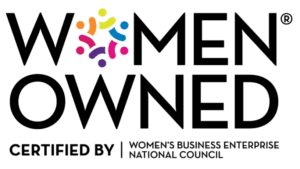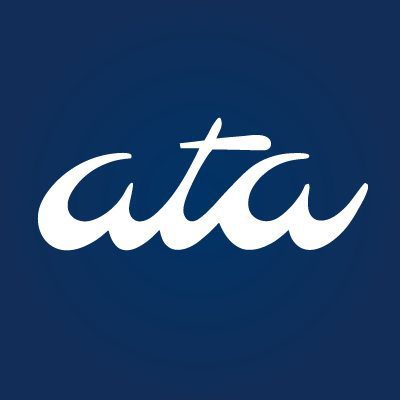In an open letter on interpreter safety during COVID-19, the Certification Commission for Healthcare Interpreters, CCHI, stated, “onsite healthcare interpreters should be provided the same level of protection and use of personal protective equipment (PPE) as any healthcare provider for whom they are interpreting.” PPE includes a wide variety of items, but can include things such as surgical masks, medical exam gloves, N95 respirators, and face shields. While PPE is required for healthcare worker, interpreter, and patient safety, its use can prove a barrier to communication for sign language users and people who are d/Deaf or hard of hearing.
Masks can be particularly problematic because they block a large portion of an individual’s face, including the mouth. American Sign Language, ASL, uses mouth movements and facial expressions, in conjunction with hand shapes and movements, to convey meaning. Those mouth movements and facial expressions are a necessary part of ASL, similar to how vowels and punctuation are necessary for English communication. As an Inclusive Communication Services interpreter explained, “Interpreters rely heavily on facial expressions for grammar, emphasis and tone, and as a form of feedback, so the mask presents several challenges to the overall process of interpreting.”

While masks cause difficulties in communication, they are necessary for the safety of healthcare workers, interpreters, and patients. With the frequent use of masks in everyday life, many d/Deaf and hard of hearing people have begun discussing the need for transparent face masks. However, according to the Association of Medical Professionals with Hearing Loss, there is only one FDA approved producer of transparent surgical face masks. That producer’s website states that they sold out of their mid-June availability within hours, and they are currently unprepared to accept orders for July.
While there are people creating homemade face masks with transparent panels, those come with the same concern as other homemade face masks: they are not medical grade. Homemade masks, whether transparent or opaque, are intended for use by the general public. They have not been through the rigorous testing necessary to show they are safe for medical workers, or interpreters, to rely on while in situations where the risk for disease for transmission may be high.

Currently, the use of masks in the medical setting for people who are d/Deaf or hard of hearing is problematic. In addition to general PPE shortages, there are only a few producers of transparent medical grade masks. There are no options for transparent N95 respirators, which is what the CCD recommends healthcare providers use when caring for patients who are confirmed or suspected to have COVID-19. According to the CCHI guidelines, this means medical interpreters should also be provided N95s, but since there are no transparent options, they will cause communication difficulties for sign language users.
Hopefully, increased awareness that masks are problematic for sign language users, and people who are d/Deaf and hard of hearing, will lead to transparent masks being more widely utilized once resources become available. Additionally, if more people are aware of the difficulties PPE can pose, there is a greater possibility for increases in innovations to improve communication while wearing PPE.
If you have any suggestions on how healthcare providers and interpreters can improve communication with sign language users, and people who are d/Deaf and hard of hearing, while wearing PPE, please comment those suggestions.
Sources:
- Association of Medical Professionals with Hearing Loss (AMPHL) Board. (2020, May 26) “A Message from Safe’N’Clear”
- Booth, Alicia. Association of Medical Professionals with Hearing Loss (AMPHL). (2020, March 25) “Precautions for Sign Language Interpreters Working COVID-19 Response Assignments”
- Centers for Disease Control and Prevention (CDC), Coronavirus Disease 2019 (COVID-19) . (2020, March 14) “Personal Protective Equipment: Questions and Answers”
- Certification Commission for Healthcare Interpreters (CCHI). (2020, April 3) “Open Letter on Ensuring Healthcare Interpreters’ Safety during the COVID-19 Pandemic.”
- ClearMask. (2020, May) “FAQ”
- Safe‘N’Clear. (2020, May) “Home.” “Our Shop”





